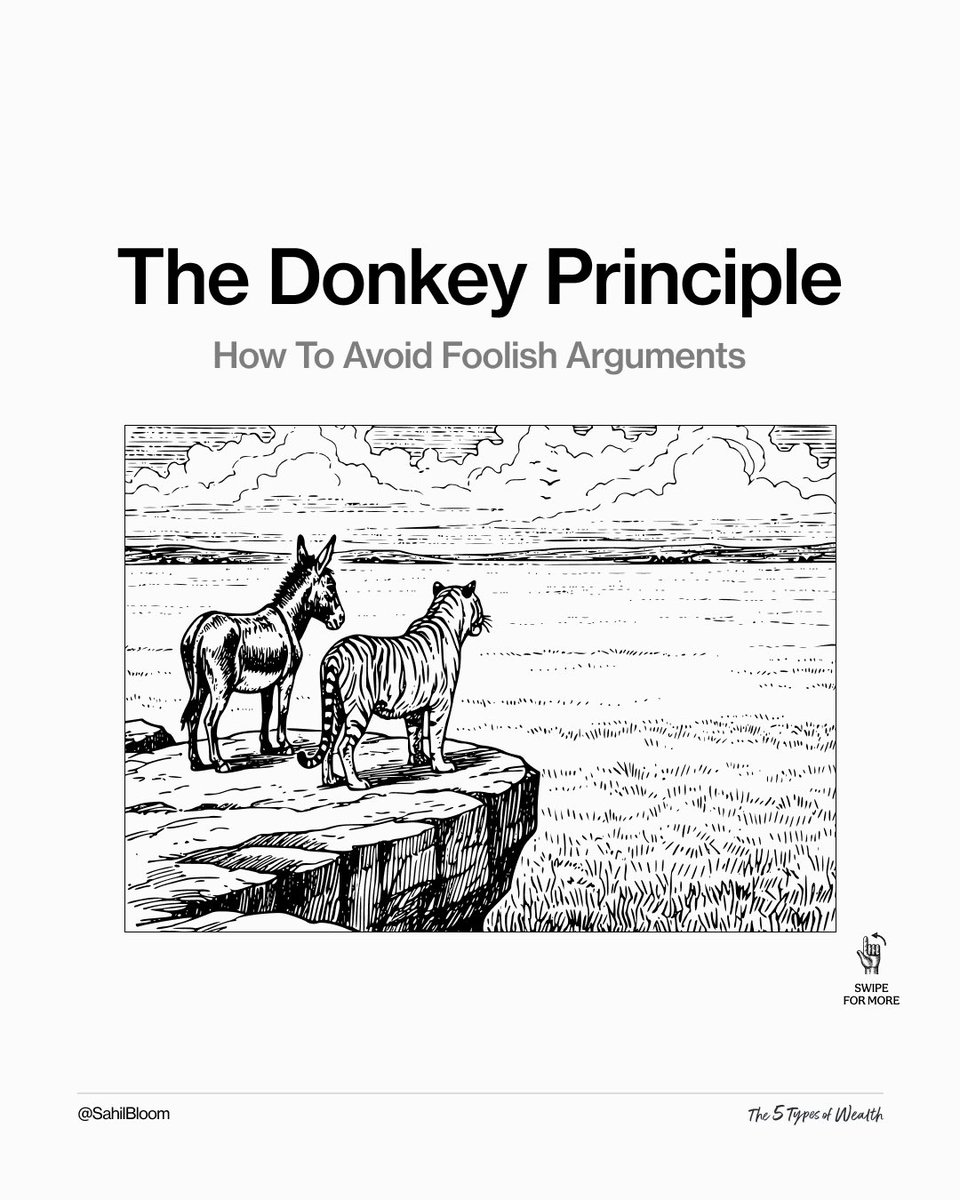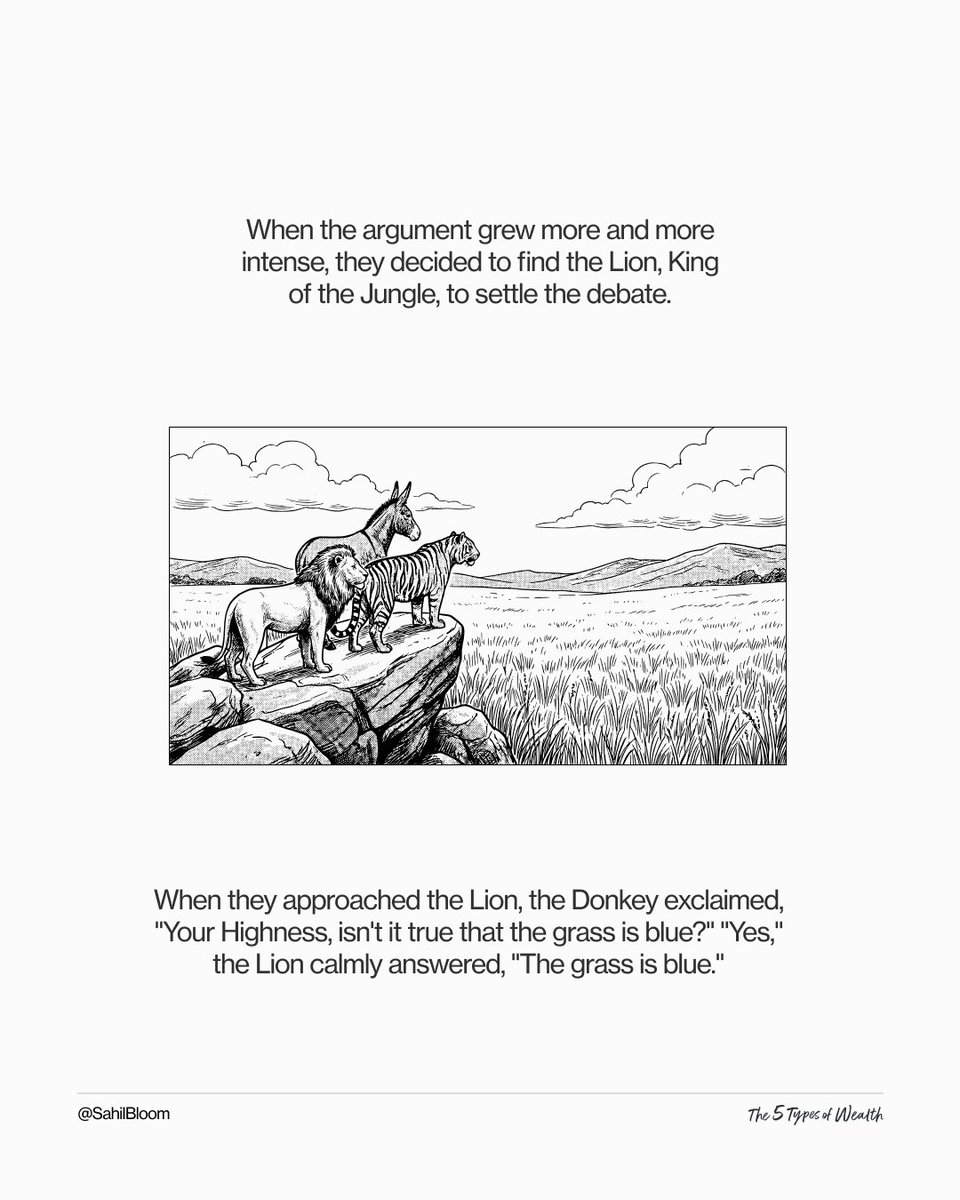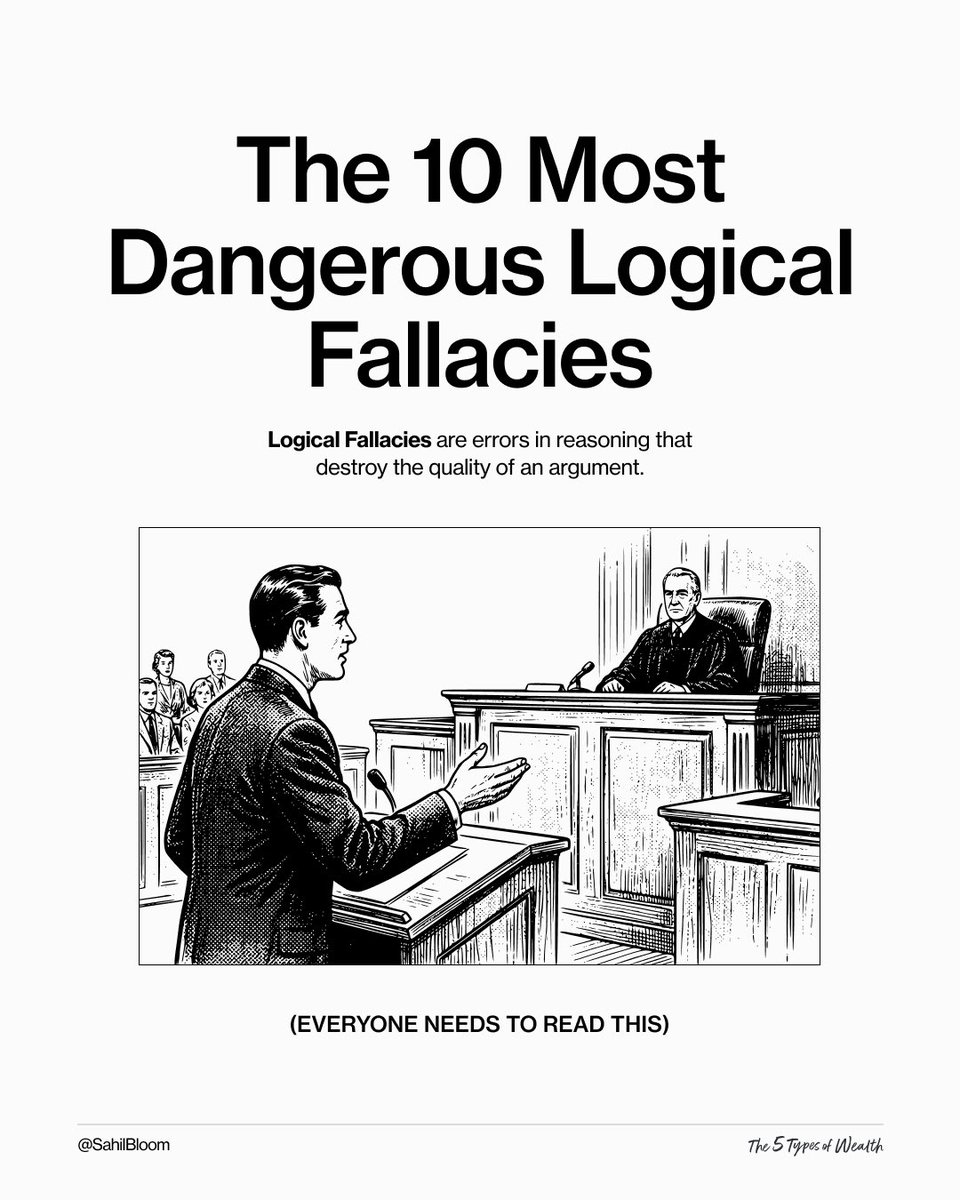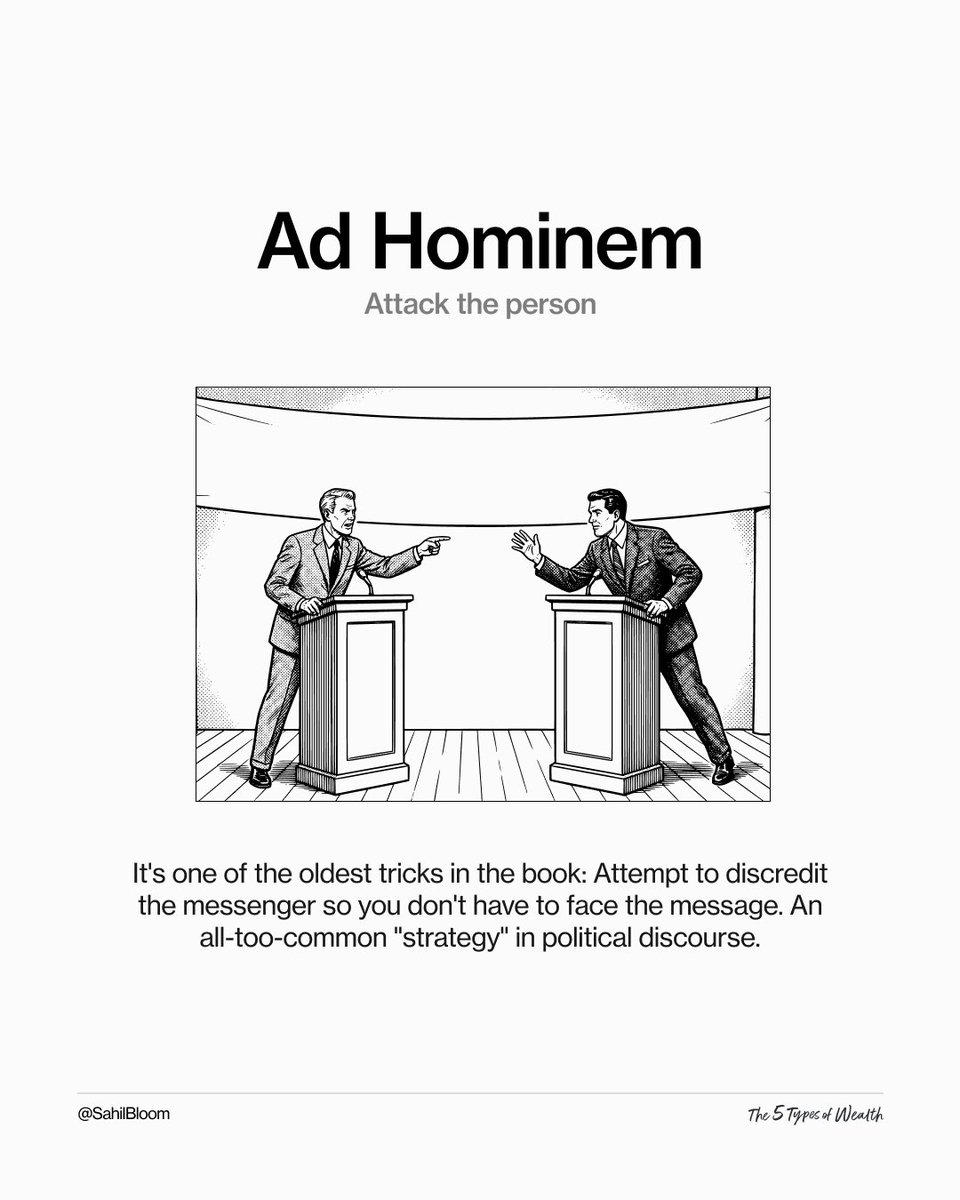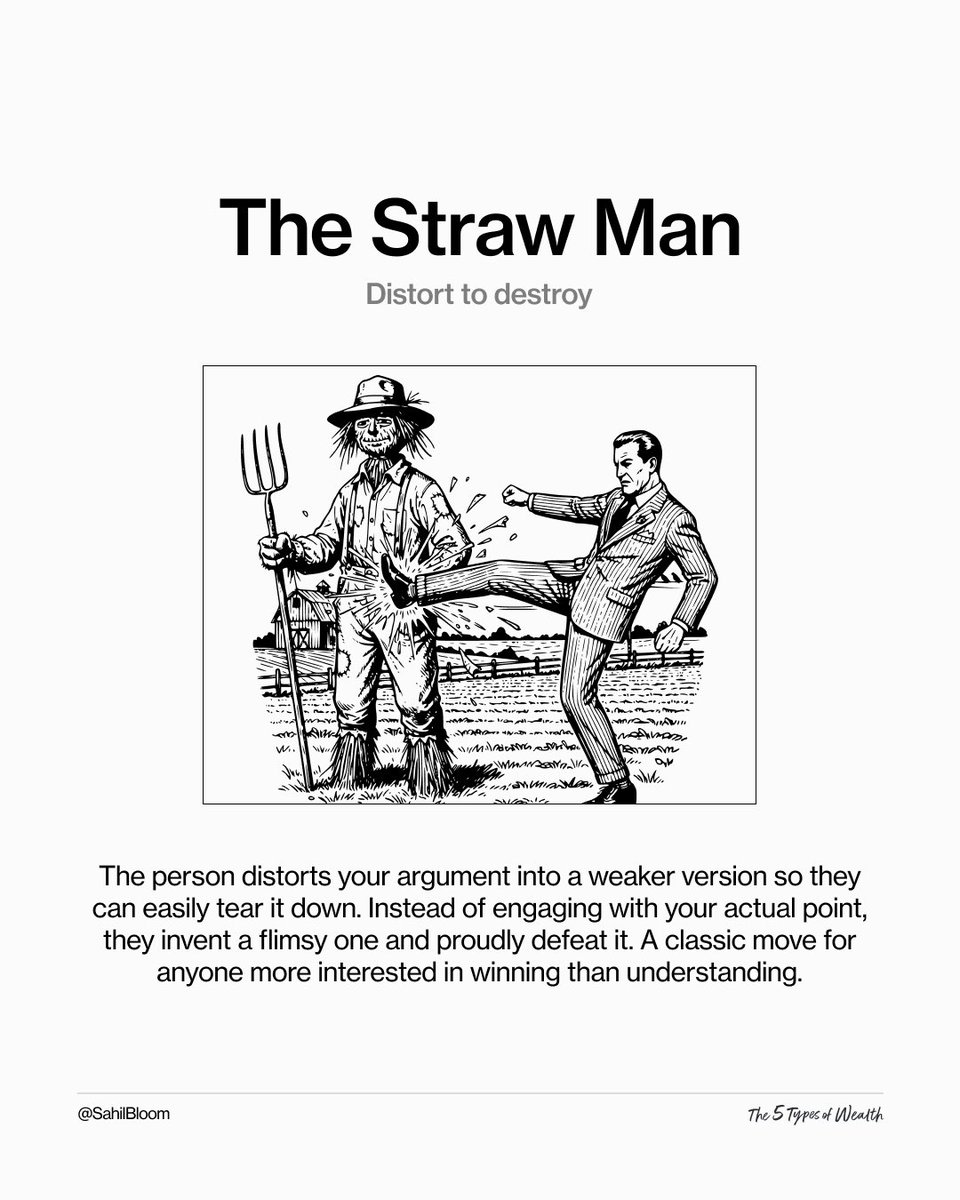Hanlon's Razor is a simple mental model for cutting through negative noise and unlocking growth in your career, startup, business, or relationships.
A short thread on what it is and how it can change your life...
A short thread on what it is and how it can change your life...

A philosophical "razor" is a principle or rule of thumb used to simplify a decision.
The "razor" quite literally cuts through the unnecessary detail, noise, and information that slows our decision-making processes.
Razors can promote quick, rational, high-quality decisions.
The "razor" quite literally cuts through the unnecessary detail, noise, and information that slows our decision-making processes.
Razors can promote quick, rational, high-quality decisions.
Occam's Razor is the most well-known of the philosophical razors.
It says that when you are weighing alternative hypotheses, the one with the fewest necessary assumptions should be chosen.
In short: simple is beautiful.
I wrote on Occam's Razor below.
It says that when you are weighing alternative hypotheses, the one with the fewest necessary assumptions should be chosen.
In short: simple is beautiful.
I wrote on Occam's Razor below.
https://twitter.com/SahilBloom/status/1326895385445593088?s=20
Hanlon's Razor is simple.
"Never attribute to malice that which can be adequately explained by stupidity."
In assessing someone's actions, we should not assume negative intent if there is a viable alternative explanation, such as different beliefs, incompetence, or ignorance.
"Never attribute to malice that which can be adequately explained by stupidity."
In assessing someone's actions, we should not assume negative intent if there is a viable alternative explanation, such as different beliefs, incompetence, or ignorance.
By broadening the original definition - from "malice" to "negative intent" and from "stupidity" to "viable alternative explanation" - we make the mental model more useful.
It becomes helpful for driving rational, quick decision-making and judgment in a range of scenarios.
It becomes helpful for driving rational, quick decision-making and judgment in a range of scenarios.
Hanlon's Razor is named after Robert Hanlon, a little-known figure who submitted it to a joke book about Murphy's Law published in 1980.
While named after Hanlon, its spirit has been around for centuries, with Napoleon, among others, believed to have made similar statements.
While named after Hanlon, its spirit has been around for centuries, with Napoleon, among others, believed to have made similar statements.

Hanlon's Razor can be a very powerful heuristic (i.e. mental shortcut) to add to your mental model toolkit.
Let's look at a few examples of where it might be useful...
Let's look at a few examples of where it might be useful...
In Politics.
We often assume the worst about politicians (and their supporters) who are on the other side of issues we care about.
Confirmation bias (the tendency to exclusively see evidence that is confirmatory of our standing beliefs) feeds into this feedback loop.
We often assume the worst about politicians (and their supporters) who are on the other side of issues we care about.
Confirmation bias (the tendency to exclusively see evidence that is confirmatory of our standing beliefs) feeds into this feedback loop.

By leveraging Hanlon's Razor, we might be able to break this cycle.
Do not assume negative intent if there is a viable alternative explanation.
In politics, there are many viable alternatives beyond negative intent.
Realizing this may open us up to more productive discourse.
Do not assume negative intent if there is a viable alternative explanation.
In politics, there are many viable alternatives beyond negative intent.
Realizing this may open us up to more productive discourse.
In Relationships.
Hanlon's Razor cuts through a perception that others are "out to get you" in life.
With your partner, family, or friends - or with new strangers - never assume negative intent if a viable alternative exists.
You'll find happier, more fulfilling relationships.
Hanlon's Razor cuts through a perception that others are "out to get you" in life.
With your partner, family, or friends - or with new strangers - never assume negative intent if a viable alternative exists.
You'll find happier, more fulfilling relationships.
Hanlon's Razor has one important caveat.
While it says that we must not ASSUME negative intent when there is a viable alternative explanation, this does not imply that actions NEVER HAVE negative intent.
There are bad actors out there who genuinely do have negative intent.
While it says that we must not ASSUME negative intent when there is a viable alternative explanation, this does not imply that actions NEVER HAVE negative intent.
There are bad actors out there who genuinely do have negative intent.
Hanlon's Razor simply suggests that these people are few and far between.
It is the glass half full.
It says that humans are inherently well intentioned, so to make decisions and judgments accordingly.
It is a powerful heuristic for viewing the world in a more positive light.
It is the glass half full.
It says that humans are inherently well intentioned, so to make decisions and judgments accordingly.
It is a powerful heuristic for viewing the world in a more positive light.
For more on Hanlon's Razor, I recommend checking out the below article from my friend @ShaneAParrish and @farnamstreet. fs.blog/2017/04/mental….
If you enjoyed this, follow me for more threads on mental models, razors, business, finance, and economics.
You can find all of my threads in the meta-thread below.
You can find all of my threads in the meta-thread below.
https://twitter.com/SahilBloom/status/1284583099775324161?s=20
And if you are less Twitter inclined, sign up for my newsletter here, where you can find all of my old threads and receive all of my new threads directly to your inbox. sahilbloom.substack.com
• • •
Missing some Tweet in this thread? You can try to
force a refresh





